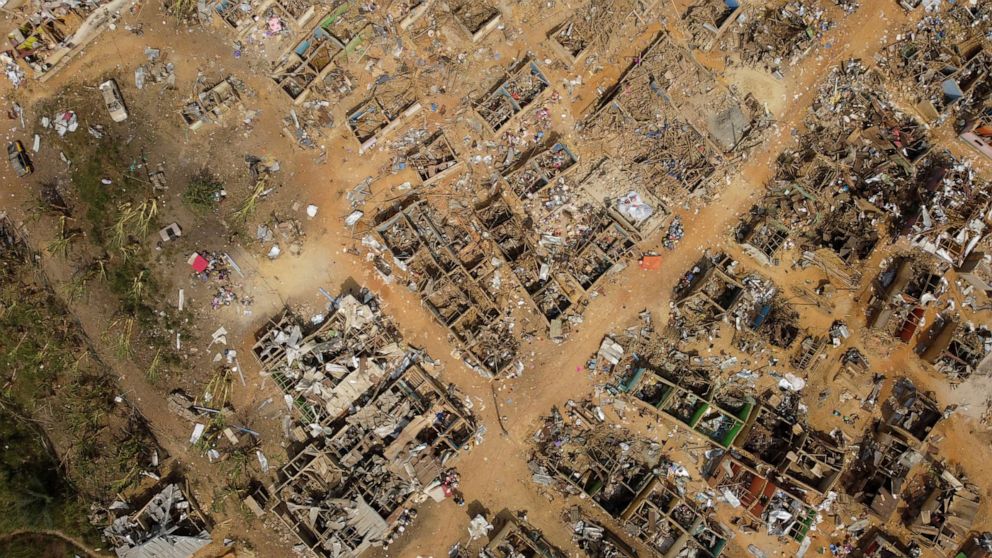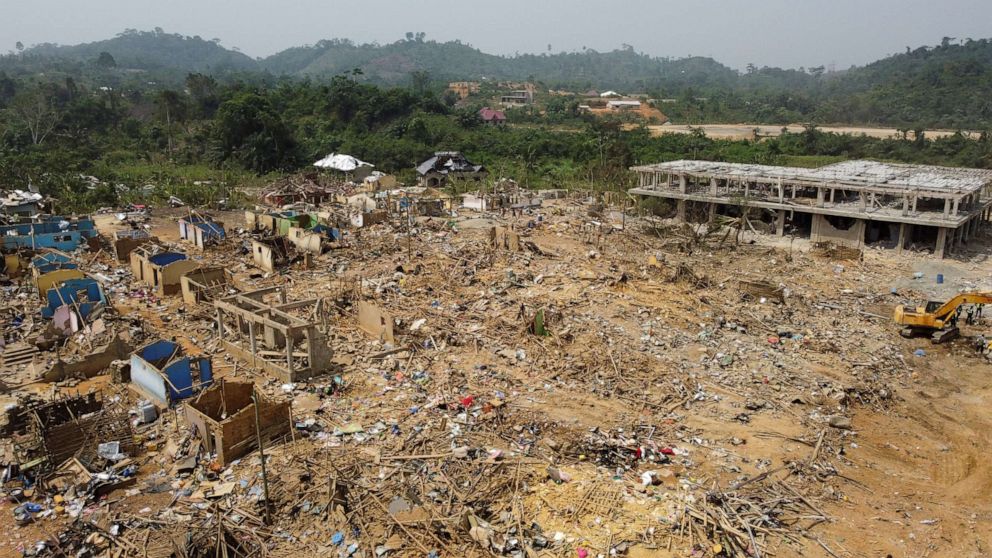Massive explosion in Ghana mining region leaves dozens dead or injured
A vehicle carrying mining explosives collided with a motorcycle, police said.
LONDON -- More than a dozen people were killed and many more were injured by a massive explosion that rocked southwestern Ghana on Thursday, authorities said.
A vehicle transporting mining explosives between the gold mines of Tarkwa and Chirano in Ghana's Western Region collided with a motorcycle in the small town of Apiate on Thursday afternoon. The truck caught fire from the collision and exploded about 15 minutes later, as residents were gathered around the scene of the crash, according to a spokesperson for the Ghana Police Service.
Police officers, firefighters, soldiers and medics rushed to the scene to rescue victims. At least 179 people were affected by the "huge" explosion, including at least 13 who died and 45 who were referred to specialist hospitals, the police spokesperson said while cautioning that the numbers could change.

Initial reports estimated the death toll to be higher because some of the wounded were in such bad condition that they were thought to be dead, according to Assistant Commissioner of Police Samuel Kwesi Ofori, who is the director-general of the Ghana Police Service's Public Affairs Directorate.
As of Friday afternoon, 36 victims remain hospitalized and 96 have been discharged, Ofori said.
The powerful blast leveled surrounding buildings, set homes ablaze, knocked out power and left a vast crater in the ground. It took firefighters hours to extinguish the flames, according to a spokesperson for the Ghana National Fire and Rescue Service.
About 384 people have been displaced in the area due to the incident, which remains under investigation, according to Ofori.

Ghanaian Vice President Mahamudu Bawumia traveled on Friday to the site in Apiate, near the mining city of Bogoso, some 180 miles west of Ghana's capital.
"This is a sad day," Bawumia said.
After visiting some of the hospitalized victims, the vice president thanked nurses and doctors for doing "a fantastic job in saving lives."
"The early intervention yesterday has helped a lot," he told reporters outside a hospital. "We want to assure all of those patients and their families, the government is willing to be responsible fully for all their medical bills."




